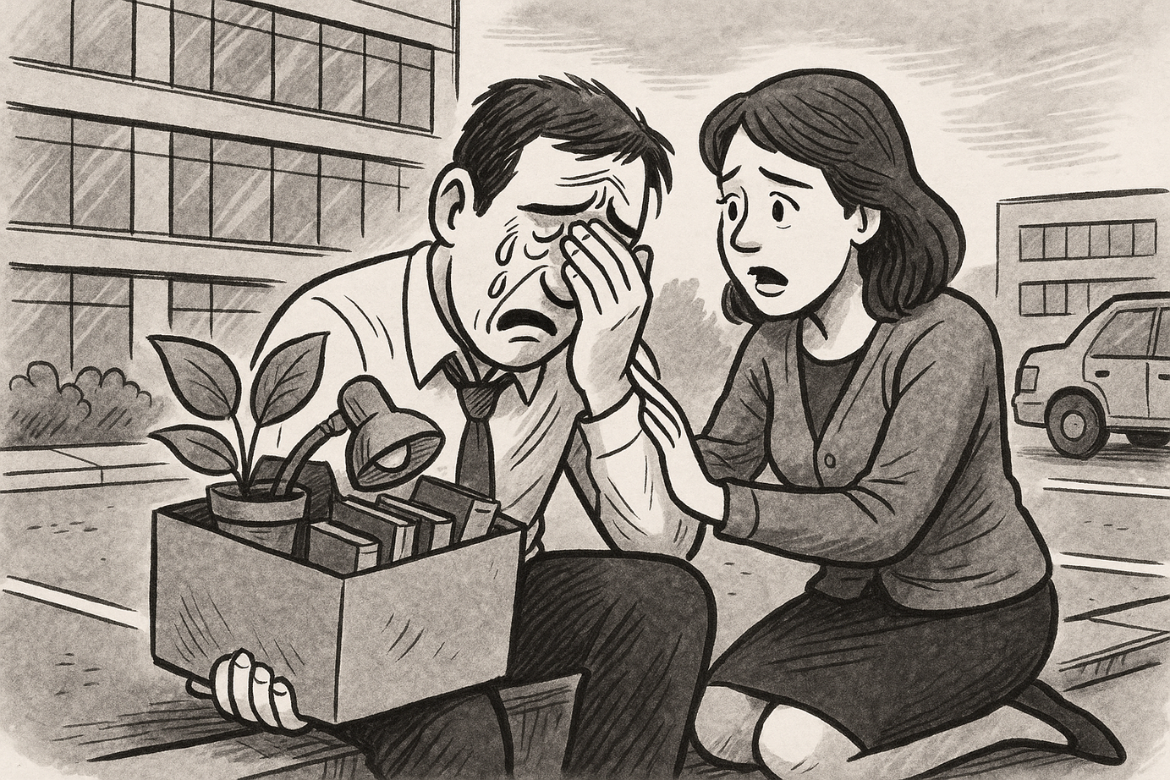Picture this: You’re at home when your husband calls from work, voice shaking. He’s been accused of misconduct and has to meet with the directors right now. What do you do?
If you’re like the New Brunswick woman at the centre of a recent workers’ compensation case, you don’t hesitate. “I immediately got in my vehicle and drove the short distance to (his place of employment) so I could hear what was being said in the meeting,” she wrote in her claim. She arrived just in time to witness what she described as “the look of fear/panic in my husband’s eyes, how my chest filled up making it difficult for me to breathe, the tears rolling down both our cheeks.”
That devastating scene played out in March 2022. Eighteen months later, she was still struggling with anxiety, depression and what felt like post-traumatic stress. So she filed for workers’ compensation, arguing that watching her husband’s professional world collapse had broken her own mental health.
The Workers’ Compensation Appeals Tribunal said no.
It’s a case that hits you right in the gut because anyone who’s been in a relationship knows this feeling. When your partner hurts, you hurt. When their job is threatened, so is your mortgage payment. The ripple effects of one person’s workplace crisis don’t politely stop at the office door.
But here’s where it gets tricky. The woman worked in a job where she sometimes had to face aggressive and violent clients. Yet when she first described her “workplace accident,” she spent pages detailing her husband’s ordeal and barely mentioned the client violence. Only after getting a denial letter explaining what qualified for compensation did her story shift to focus on her own workplace incidents.
The tribunal noticed. They found it telling that “the narrative changed and the focus shifted from the appellant’s husband’s misconduct allegations, to being exposed to violence in the workplace.”
The role of workers’ compensation
Now, before anyone thinks the tribunal was being heartless, let’s talk about what workers’ compensation actually covers. It’s not general life insurance. It’s specifically for injuries that happen because of your job. The law in New Brunswick is pretty clear about mental stress claims — they have to come from something truly traumatic that happened at work, involving “actual or threatened death or serious injury” or sexual violence.
That’s a high bar, and it exists for good reason. If we started compensating people for psychological injuries caused by their family members’ workplace problems, where would it end? What about parents devastated by their kids getting fired? Siblings traumatized by workplace accidents? The human connections that make us vulnerable to each other’s pain are endless.
Real suffering
The woman’s suffering was real. The tribunal acknowledged that a reasonable person would find misconduct allegations traumatic. But traumatic for whom? Her husband went through the actual workplace crisis. She experienced the fallout as a worried spouse.
Her psychologist noted something interesting — this 2022 situation was “almost identical to an event that had happened to her and her family back in 2016.” Life has this cruel way of repeating our worst nightmares. But that pattern also suggests her psychological vulnerability had roots that went deeper than any single workplace incident.
What if both spouses worked for the same employer?
One question that jumped to mind when reading this decision is one the tribunal didn’t have to answer: What if both spouses had worked for the same company?
If the husband’s misconduct allegations happened at a workplace where his wife also worked daily, dealing with the same culture, the same clients, the same environment that produced the crisis? The legal framework might not change, but the facts could be a bit messier.
Instead, we have a cleaner scenario that forces us to think about where workplace responsibility begins and ends. The woman’s employer had zero connection to her husband’s situation. They couldn’t have prevented it, predicted it, or controlled it.
Holding them liable for her psychological breakdown would be like suing your neighbour because their house fire gave you nightmares.
Workers’ compensation systems walk a difficult line. They need to be broad enough to cover legitimate workplace injuries — including psychological ones that can be just as disabling as broken bones. But they can’t become a catch-all for every way that work intersects with personal pain.
The law recognizes that some workplace events can shatter people psychologically. A bank teller held at gunpoint. A nurse attacked by a patient. A construction worker who watches a colleague fall to their death. These situations create a direct line from workplace trauma to psychological injury.
But watching someone you love go through their own workplace trauma? That’s different. It’s no less painful, but it’s a different kind of pain with a different source.
Empathy versus legal liability
Empathy and legal liability live in different worlds. The workers’ compensation system exists to address the inherent risks of employment — the bargain we make when we accept wages in exchange for our time, effort and exposure to workplace dangers.
It cannot, and probably should not, become insurance against all the ways that loving someone can leave us vulnerable to their pain. Some wounds, however real and however deep, simply fall outside the boundaries of what our legal systems can or should try to heal.





